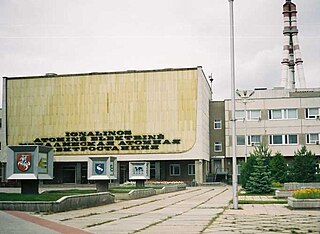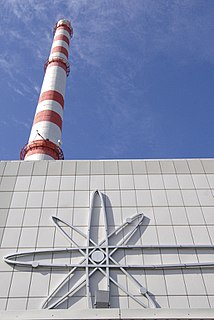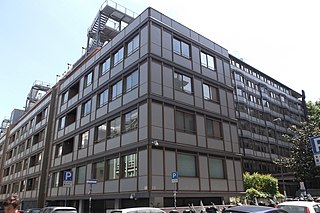Since the introduction of parliamentarism in Sweden, six national referendums have been held. Legal provisions for referendums were introduced in 1922, one year after the adoption of universal suffrage. The Constitution of Sweden provides for binding referendums, but all referendums held as of 2012 have been non-binding. The latest referendum, on adopting the euro, was held on 14 September 2003.

Referendums in the United Kingdom are occasionally held at a national, regional or local level. National referendums can be permitted by an Act of Parliament and regulated through the Political Parties, Elections and Referendums Act 2000, but they are by tradition extremely rare due to the principle of parliamentary sovereignty meaning that they cannot be constitutionally binding on either the Government or Parliament, although they usually have a persuasive political effect.

A referendum, in the Italian legal system is a request directed to the whole electorate to express their view on a determined question. It is the main instrument of direct democracy in Italy.

The Ignalina Nuclear Power Plant is a closed two-unit RBMK-1500 nuclear power station in Visaginas Municipality, Lithuania. It was named after the nearby city of Ignalina. Due to the plant's similarities to the failed Chernobyl Nuclear Power Plant in both reactor design and lack of a robust containment building, Lithuania agreed to close the plant as part of its accession agreement to the European Union. Unit 1 was closed in December 2004. The remaining Unit 2 which counted for 25% of Lithuania's electricity generating capacity and supplied about 70% of Lithuania's electrical demand, was closed on December 31, 2009. Proposals have been made to construct a new nuclear power plant at the same site.

Russia is one of the world's largest producers of nuclear energy. In 2018 total electricity generated in nuclear power plants in Russia was 202.87 TWh, 20.8% of all power generation. The installed gross capacity of Russian nuclear reactors is 31,315 MW by December 2018.

A referendum on the divorce law was held in Italy on 12 May 1974. Voters were asked whether they wanted to repeal a government law passed three years earlier allowing divorce for the first time in modern Italian history. Those voting "yes" wanted to outlaw divorce as had been the case before the law came into effect, and those voting "no" wanted to retain the law and their newly gained right to divorce. The referendum was defeated by margin of 59.26% to 40.74% on a voter turnout of 87.72% out of 37 million eligible voters, thus allowing the divorce laws to remain in force.
The Belene Nuclear Power Plant is a planned nuclear power plant 3 km from Belene and 11 km from Svishtov in Pleven Province, northern Bulgaria, near the Danube River. It was intended to substitute four VVER-440 V230 reactors of the Kozloduy Nuclear Power Plant that were decommissioned as a prerequisite for Bulgaria to join the European Union.

Nuclear power in Italy is a controversial topic. Italy started to produce nuclear energy in the early 1960s, but all plants were closed by 1990 following the Italian nuclear power referendum. As of 2018, Italy is one of only two countries, along with Lithuania, that completely phased out nuclear power for electricity generation after having operational reactors.

The Welsh devolution referendum on law-making powers, also known as the Referendum on the law-making powers of the National Assembly for Wales, was a non-binding referendum held in Wales on 3 March 2011 on whether the Welsh Assembly should have full law making powers in the twenty subject areas where it has jurisdiction. The referendum asked the question: ‘Do you want the Assembly now to be able to make laws on all matters in the 20 subject areas it has powers for?’

Referendums in Taiwan at both the national and local level are governed by the Referendum Act of Taiwan, which was enacted by the Legislative Yuan in December 2003. Citizens can propose laws via referendums at the national and local levels. The Referendum Act also allowed people to make changes or abolish laws by referendums.
Lithuania does not have any operational nuclear power reactor. It operated two RBMK reactors at Ignalina nuclear power plant which were shut down in 2004 and 2009.
The electricity sector in Italy describes the production, sale, and use of electrical power in Italy. The country's total electricity consumption was 297.3 TWh in 2013, of which 278.8 TWh (93.7%) was produced domestically.

A referendum on abolishing the wage escalator was held in Italy on 9 June 1985. The escalator allowed for the automatic growth of the salaries of Italian workers at the same rate as inflation. This mechanism was accused of causing high inflation which damaged the lira during the 1980s, with a 20% annual rate. Voters were asked whether they wanted to repeal a law passed by the government of socialist Prime Minister Bettino Craxi which had strongly reduced this automatic mechanisms. The referendum was called by the Italian Communist Party. Those voting "yes" wanted to restore the automatic growth of the salaries as the inflation ratio, and those voting "no" wanted to retain the law which tried to reduce the high inflation.

A nationwide popular referendum was held in Italy on 12 June and 13 June 2011, on four questions concerning the repeal of recent laws regarding the privatisation of water services, a return to the nuclear energy which had been phased out after the 1987 referendum, and criminal procedure, specifically a provision exempting the Prime Minister and the Ministers from appearing in court. The first aim of those campaigning for a yes vote was to ensure that the quorum of the electorate was reached.
The anti-nuclear movement in Russia is a social movement against nuclear technologies, largely stemming from the results of the Chernobyl incident in 1986. During the most active phase of the anti-nuclear movement, from 1988 to 1992, construction of over 100 nuclear projects were prevented on the territory of the Soviet Union. Also, the economic troubles of the 1990s led to a reduction in the number of construction projects. This deprived the anti-nuclear movement of its raison d’être. At the same time, it too was affected by financial difficulties, in particular the lack of donations, which continues to be an issue today. Since the 2000s the Russian Government embarked on highly pro-nuclear policy, with plans to invest billions of dollars in developing the nuclear industry, which leaves the movement with big challenges.

An advisory referendum on the construction of a new nuclear power station was held in Lithuania on 14 October 2012, alongside parliamentary elections. The proposal was rejected by 65% of voters.

A referendum on building a new nuclear power plant was held in Bulgaria on 27 January 2013. Whilst it was not explicitly mentioned in the question, it was widely acknowledged that the referendum was about restarting construction at the Belene Nuclear Power Plant.
A referendum is a direct vote in which an entire electorate is asked to either accept or reject a particular proposal. This article summarises referendum laws and practice in various countries.

A constitutional referendum was held in Italy on Sunday 4 December 2016. Voters were asked whether they approve a constitutional law that amends the Italian Constitution to reform the composition and powers of the Parliament of Italy, as well as the division of powers between the State, the regions, and administrative entities.
The Venetian autonomy referendum of 2017 took place on 22 October in Veneto, Italy.




















